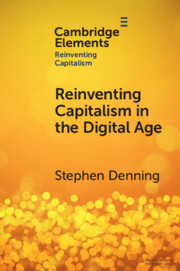Element contents
Reinventing Capitalism in the Digital Age
Published online by Cambridge University Press: 16 November 2022
Summary
Information
- Type
- Element
- Information
- Online ISBN: 9781009332880Publisher: Cambridge University PressPrint publication: 15 December 2022
